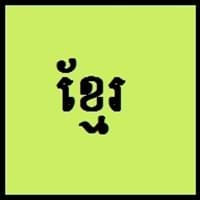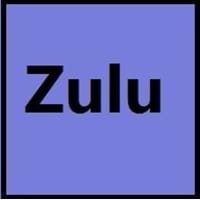Khmer and Zulu
Countries
Cambodia
South Africa
National Language
Cambodia, Thailand, Vietnam
South Africa
Second Language
Not spoken in any of the countries
Botswana, Lesotho, Malawi, Mozambique, Swaziland, Zimbabwe
Speaking Continents
Asia
Africa
Minority Language
Australia, France, United States of America
Not spoken in any of the countries
Regulated By
Not Available
Pan South African Language Board
Interesting Facts
- Khmer is not the tonal language.
- Khmer language has borrowed philisophical, administrative and technical vocabulary from Sanskrit and Pali.
- The meaning of word "Zulu" means "Sky"and Zulu was the name of the ancestor who founded the Zulu royal line in about 1670.
- Zulu language has many loanwords borrowed from Afrikaans and English Languages.
Similar To
Lao Language
Xhosa Language
Derived From
Pali and Sanskrit Languages
Not Available
Alphabets in
Khmer-Alphabets.jpg#200
Zulu-Alphabets.jpg#200
Writing Direction
Left-To-Right, Horizontal
Not Available
Thank You
សូមអរគុណអ្នក (saum arkoun anak)
Ngiyabonga
How Are You?
អ្នកសុខសប្បាយទេ
unjani
Good Night
ND
okuhle ebusuku
Good Evening
ND
okuhle kusihlwa
Good Afternoon
ND
okuhle ntambama
Good Morning
ND
okuhle ekuseni
I Love You
ND
Ngiyakuthanda wena
Dialect 1
Northern Khmer
Qwabe
Where They Speak
Australia, Cambodia, France, Thailand, United States of America
Gabon, South Africa
How Many People Speak
Not Available
Dialect 2
Khmer Krom
central KwaZulu-Natal Zulu
Where They Speak
Vietnam
Georgia, South Africa
How Many People Speak
Not Available
Dialect 3
Western Khmer
Ndebele
Where They Speak
Cambodia, Thailand
Zimbabwe
Second Language Speakers
Not Available
Native Name
ភាសាខ្មែរ (bhāsā khmɛ̄r)
isiZulu
Alternative Names
Cambodian, Khmer
Isizulu, Zunda
French Name
khmer central
zoulou
German Name
Kambodschanisch
Zulu-Sprache
Pronunciation
[pʰiːəsaː kʰmaːe]
Not Available
Ethnicity
Khmer, Northern Khmer
Zulu people
Language Family
Austroasiatic Family
Niger-Congo Family
Subgroup
Not Available
Benue-Congo
Branch
Not Available
Beatu
Early Forms
Proto-Khmer
urban Zulu
Standard Forms
Modern Khmer
Deep Zulu
Language Position
Not Available
Signed Forms
Not Available
Not Available
Scope
Individual
Individual
ISO 639 6
Not Available
Not Available
Glottocode
khme1253
zulu1248
Linguasphere
Not Available
99-AUT-fg
Language Type
Living
Living
Language Linguistic Typology
Subject-Verb-Object
Subject-Verb-Object
Language Morphological Typology
Analytic, Isolating
Not Available
All Khmer and Zulu Dialects
Most languages have dialects where each dialect differ from other dialect with respect to grammar and vocabulary. Here you will get to know all Khmer and Zulu dialects. Various dialects of Khmer and Zulu language differ in their pronunciations and words. Dialects of Khmer are spoken in different Khmer Speaking Countries whereas Zulu Dialects are spoken in different Zulu speaking countries. Also the number of people speaking Khmer vs Zulu Dialects varies from few thousands to many millions. Some of the Khmer dialects include: Northern Khmer, Khmer Krom. Zulu dialects include: Qwabe , central KwaZulu-Natal Zulu. Also learn about dialects in South American Languages and North American Languages.
Khmer and Zulu Speaking population
Khmer and Zulu speaking population is one of the factors based on which Khmer and Zulu languages can be compared. The total count of Khmer and Zulu Speaking population in percentage is also given. The percentage of people speaking Khmer language is 0.24 % whereas the percentage of people speaking Zulu language is 0.16 %. When we compare the speaking population of any two languages we get to know which of two languages is more popular. Find more details about how many people speak Khmer and Zulu on Khmer vs Zulu where you will get native speakers, speaking population in percentage and native names.
Khmer and Zulu Language Codes
Khmer and Zulu language codes are used in those applications where using language names are tedious. Khmer and Zulu Language Codes include all the international language codes, glottocodes and linguasphere.





